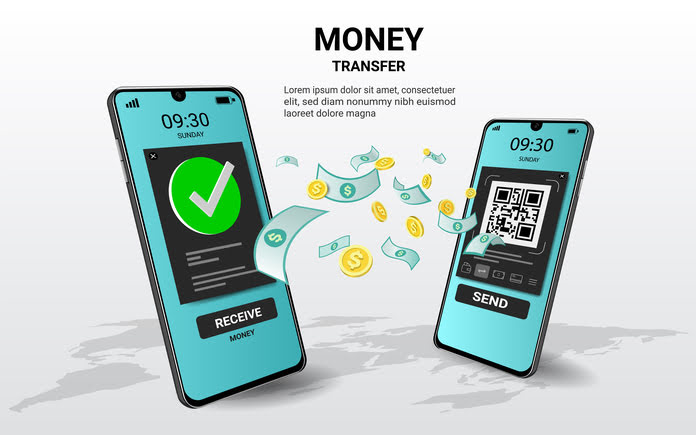Block Stock (NYSE:SQ)
After-hours trading on Thursday saw an increase in the price of Block Stock. The company’s Cash App mobile payments platform was largely responsible for the company’s success in beating revenue expectations for the first quarter.
Block, a company that specializes in digital payments, has been making headlines for several years now as it has continued to expand and innovate within the realm of financial technology. The company has once again exceeded expectations in its most recent earnings report, which was driven in large part by the success of the Cash App that the company developed. In the following paragraphs, we will discuss the specifics of Block’s earnings report, analyze the contribution that the Cash App made to Block’s success, and discuss the implications of these findings for investors.
First-quarter total net revenue came in at $4.99 billion, representing a year-over-year increase of 26%. The combined company’s gross profit increased by 32%, reaching $1.71 billion, which is a year-over-year increase of 27%.
In recent years, a significant portion of Block’s success can be attributed to the Cash App. This mobile payment app has amassed a significant number of users as a result of its user-friendliness, its low fees, and its features, which include direct deposit and stock trading. The most recent quarter saw a significant increase in user growth for the app, with 36 million monthly active users, which is an increase from the previous quarter’s figure of 30 million. This growth, coupled with an increase in users’ adoption of the app’s features, contributed to the company’s increased revenue and profits.
Additionally, Block SQ -2.28% (NYSE:SQ) reported an operating loss of $6 million, an adjusted operating income of $51 million, and a net loss for the quarter of $17 million, which is equivalent to 40 cents per share.
The company which is currently being led by co-founder and former Twitter CEO Jack Dorsey was expected to report earnings of 35 cents per share on revenue of $4.6 billion, according to analysts who were surveyed by FactSet.
Block reported that the gross profit of its Cash App mobile payments platform increased by 49% from the previous year, reaching $931 million. The company’s point-of-sale system generated a gross profit that was up 16% year on year, coming in at $770 million.
According to the report from the company, Cash App’s monthly card activities increased by 34% to 20 million in March, and their average spending also increased during that time period.
Block increased its adjusted earnings before interest, taxes, depreciation, and amortization for the full year of 2023 to a total of $1.36 billion, which is an increase from the previous figure of $1.3 billion.
Investors in the company, which includes the mobile payments platform Cash App, the point-of-sale system Square, and the “buy now, pay later” service Afterpay, appear to be satisfied with the results, which appear to be sufficient. After finishing Thursday’s trading session up 1.9%, shares of Block were trading at a 2% premium in the after-hours session.
Following the publication of a damaging report by a short seller, investors have witnessed a significant decline in the value of Block’s shares this year. The stock has experienced a decline of 3.8% in 2023, whereas the S&P 500 index has seen a gain of 5.8%, and the technology-focused Nasdaq CompositeCOMP +1.97% has seen a rise of 14%.
A significant portion of Block stock price drop has occurred after the 23rd of March, when Hindenburg Research disclosed a short position and published a critical report about the company. Prior to this date, Block’s stock price had increased by 16% year to date. Hindenburg alleged that Block had inflated user metrics and did not rein in illicit activity by customers on its Cash App platform. A short position is a type of trade in which the investor effectively bets against the stock of the company.
As a result of the Cash App’s ongoing success, investors are speculating about what the near and distant futures may have in store for this widely used payment platform. Block has already announced plans to expand the capabilities of the app, which will include adding support for additional cryptocurrencies and increasing the number of investment options available. The Cash App has a significant potential to continue expanding, especially as an increasing number of people switch to using mobile banking and digital payment methods.
In response to the allegations, Block first stated that it would investigate the possibility of taking legal action against Hindenburg, and then it issued a comprehensive rebuttal to the claims. The business issued a statement in which it detailed the number of verified users and reaffirmed its stringent approach to risk and compliance.
Investors should not anticipate that the headwinds caused by Hindenburg’s allegations, which have caused Wall Street to be divided and resulted in a number of downgrades from analysts, will ease up just yet. When the company announces its results, the fundamental metrics from Block’s earnings will be essential. However, you should be prepared for questions—and possibly even new revelations—from analysts, as they will almost certainly use the earnings conference call as an opportunity to interrogate management.
Additionally, Block must contend with intensifying competition from both PayPal (NASDAQ:PYPL) and the Apple Pay program (NASDAQ:AAPL). In addition, this year, Bank of America (NYSE:BAC), JPMorgan Chase (NYSE:JPM), and five other large banks that are part of the Zelle payments network intend to launch a digital wallet. If the digital wallet is integrated into the services that are already provided to existing bank customers, those customers will have the ability to choose to use Zelle’s product rather than Block or PayPal PYPL simply by clicking or tapping the option when making online purchases. Zelle’s product has a number of advantages over Block and PayPal.
Featured Image: Freepik















